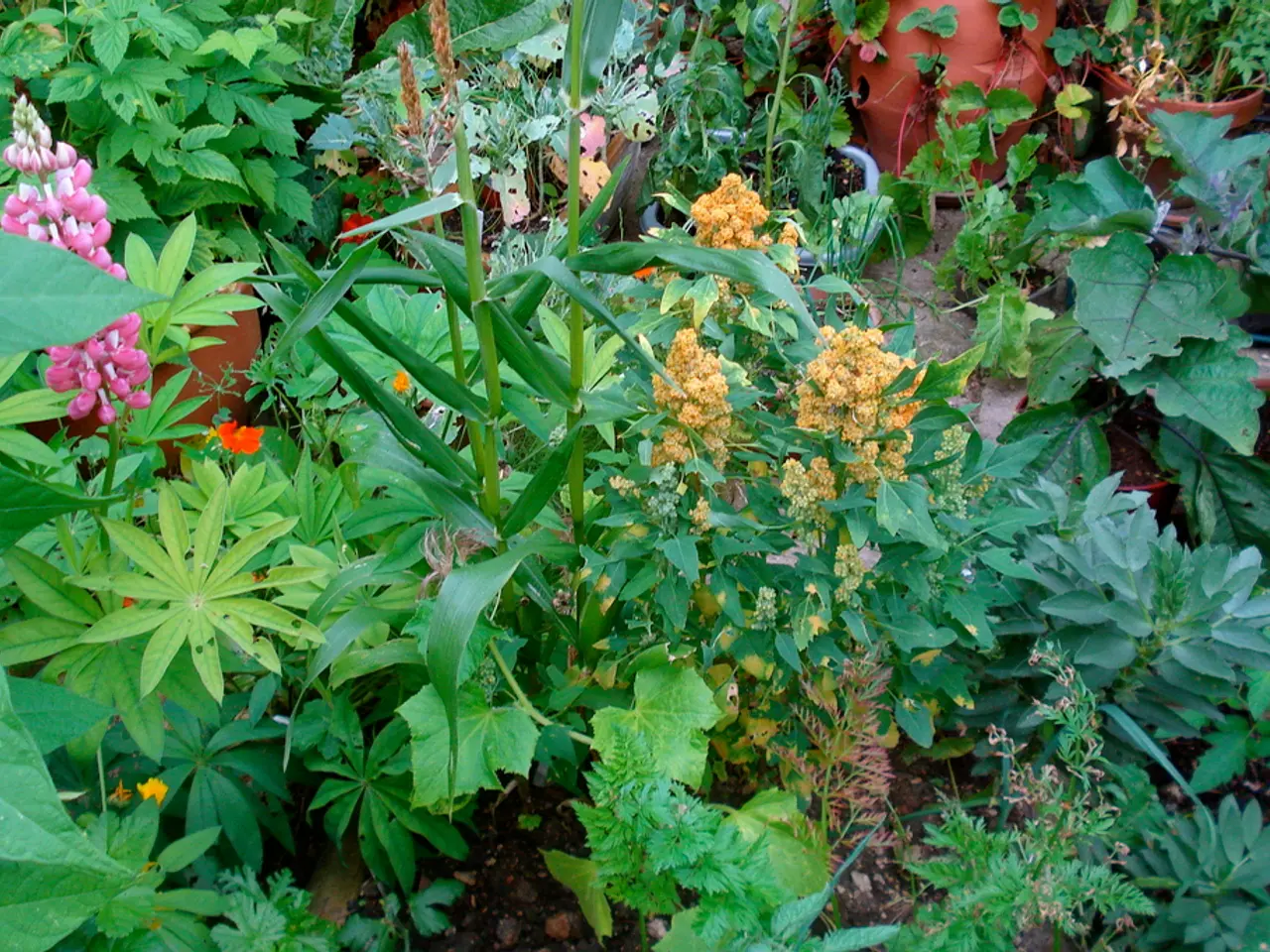Cultivating Plants for Enhanced Sleep Quality
In the pursuit of a good night's rest and improved mental health, many turn to conventional methods like sleeping medications. However, a more natural and holistic approach may lie in gardening – an activity that offers numerous benefits for both body and mind.
The University of Oxford suggests gardening as a potential solution for sleep problems, and companies like Gardenuity offer garden kits to help improve sleep quality. The reasons behind gardening's positive impact on sleep are interconnected and multifaceted.
Firstly, exposure to natural light and vitamin D, both essential for regulating the circadian rhythm, are crucial when gardening outdoors. This synchronization promotes better sleep quality at night. Additionally, sunlight exposure boosts vitamin D production, which is linked to improved mood and overall health, indirectly supporting restful sleep[1].
Physical activity, another key component of gardening, helps release endorphins – natural chemicals that relieve stress and elevate mood. This increased physical activity can improve sleep quality by increasing sleep drive and reducing symptoms of anxiety and depression[1][3].
Gardening also provides a break from screens and everyday stressors, offering a sense of control and accomplishment that helps calm the nervous system and reduce stress hormone levels. Many gardeners report feeling more relaxed and mentally refreshed after spending time tending their gardens[2][3].
Moreover, gardening encourages mindfulness by focusing attention on simple, repetitive tasks like watering or pruning plants. This practice can promote relaxation and reduce anxiety, acting as a form of moving meditation that grounds individuals in the present moment[3].
Indoor plants, especially in the bedroom, can further support sleep quality by improving air quality, increasing humidity, and creating a calming environment. Certain plants release oxygen at night and filter toxins, while the presence of plants helps lower anxiety and calm the nervous system[4][5].
Engaging in gardening can lead to a genuine feeling of better well-being. It is a positive, forward-looking activity that encourages healthy habits such as eating and drinking water. Inconsistent sleeping patterns, anxiety, depression, blue light, too much caffeine, and unhealthy eating habits can prevent sleep, but gardening can help combat these issues[6].
In conclusion, gardening combines physical activity, exposure to natural light, stress relief, mindfulness, and environmental benefits to enhance both sleep quality and mental well-being. This holistic effect makes it a powerful and natural way to promote restful sleep and reduce stress levels[1][2][3][4][5].
Sleep is essential for a healthy lifestyle, and maintaining good sleep hygiene is crucial. Aim for at least 8 hours of sleep to feel your best. This May, as Mental Health Awareness Month approaches, consider starting a garden habit to boost your mental health and create a calming, rejuvenating space in your home.
- As part of a holistic approach to improving sleep and mental health, one could consider the benefits of gardening within the home-and-garden sector, such as the University of Oxford's suggestion of gardening as a potential solution for sleep problems.
- In line with the pursuit of a healthier lifestyle and better mental health, engaging in gardening activities may prove beneficial due to its multifaceted positive impact on sleep, which includes physical exercise, mental relaxation, and the creation of a calming environment – all of which are key aspects to consider during Mental Health Awareness Month this May.




